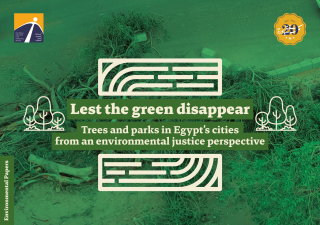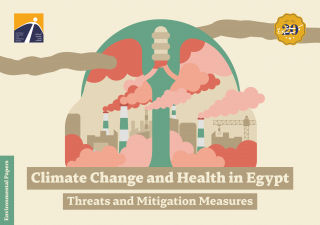Programs: Economic and Social Justice
The Egyptian Initiative for Personal Rights (EIPR) issued a paper on Wednesday analysing the draft labor law currently under discussion in the parliament.
Today, The Egyptian Initiative for Personal Rights (EIPR) released the English translation of its research paper, “Diesel without sulfur – for cleaner air and better health.” The paper is the third release in a series addressing the issue of air pollution in Egypt as the greatest environmental threat to public health. It focuses on unclean diesel fuel, whose exhaust fumes from burning cause lung cancer.
Today, Saturday, the Egyptian Initiative for Personal Rights issued a new paper in the environmental justice dossier entitled "Lest the green disappear - trees and gardens in Egypt's cities from the perspective of environmental justice."
The debt crisis will not be solved by a new loan
External debt payments for a year exceed foreign currency reserves and current debt policy is not sustainable
Today, EIPR released a research paper entitled "Climate Change and Health in Egypt--Threats and Mitigation Measures". The paper, which is issued within the "Environmental Papers" series, addresses the intersection between public health and environmental policies in Egypt, coinciding with Egypt's hosting of the twenty-seventh session of the Conference of the Parties to the United Nations Climate Agreement (COP27) next month in Sharm El-Sheikh.
Today, the Egyptian Initiative for Personal Rights (EIPR) issued a position paper entitled “An Egyptian emergency plan to confront climate change: COP27 as an opportunity to change course”.
Today, the Egyptian Initiative for Personal Rights (EIPR) issued a position paper entitled “An Egyptian emergency plan to confront climate change: COP27 as an opportunity to change course”.








